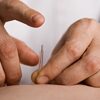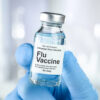An FDA advisory panel is calling on the agency to provide women with more information on the potential risks associated with breast implants prior to surgery. The panel, which heard from women who had been harmed by the implants, said a consent form should be reviewed by patients and their health care provider explaining the significant risks associated with implants. Breast pain, scar tissue and rupture of the implant itself are some of the risks. Breast implants available in the US are either filled with saline or silicone, and smooth or textured. Textured implants have been linked to cancer. However, the panel didn’t agree to suggest removing those from the market. Posted March 26, 2019. Via FDA.
The FDA is proposing adding language about breast density information to mammography reports that are given to women and their health care providers. Mammograms of dense breast are often difficult to interpret because they can hide signs of breast cancer. As a result, the FDA wants language that would explain how dense breasts can impact the accuracy of a mammogram and suggest that patients talk to their health care provider about their breast cancer risk, and if further evaluation is necessary. The agency is also said proposed amendments would strengthen its ability to enforce mammography standards at facilities. Posted March 27, 2019. Via FDA.
A supplement that some people use as an alternative to statins to reduce cholesterol may cause liver damage. A case report found that a 64-year-old woman developed severe liver injury six weeks after starting to take red yeast rice supplement. Red yeast rice is made by fermenting steamed rice with food fungus. The supplements contains the chemical monacolin K, which is also found in the statin lovastatin. Statins can also cause liver damage in some cases. The woman was diagnosed with acute drug induced liver injury. She stopped taking red yeast rice, was treated with steroids and her liver function eventually returned to normal. Posted March 25, 2019. Via BMJ Case Reports.






